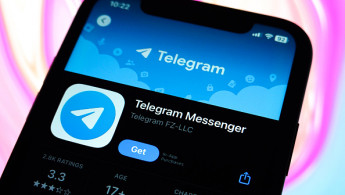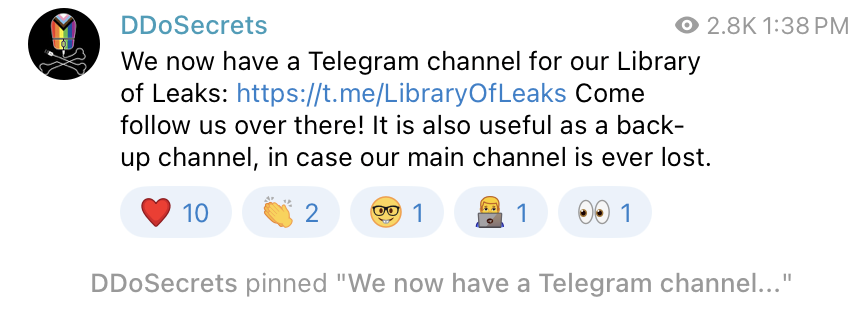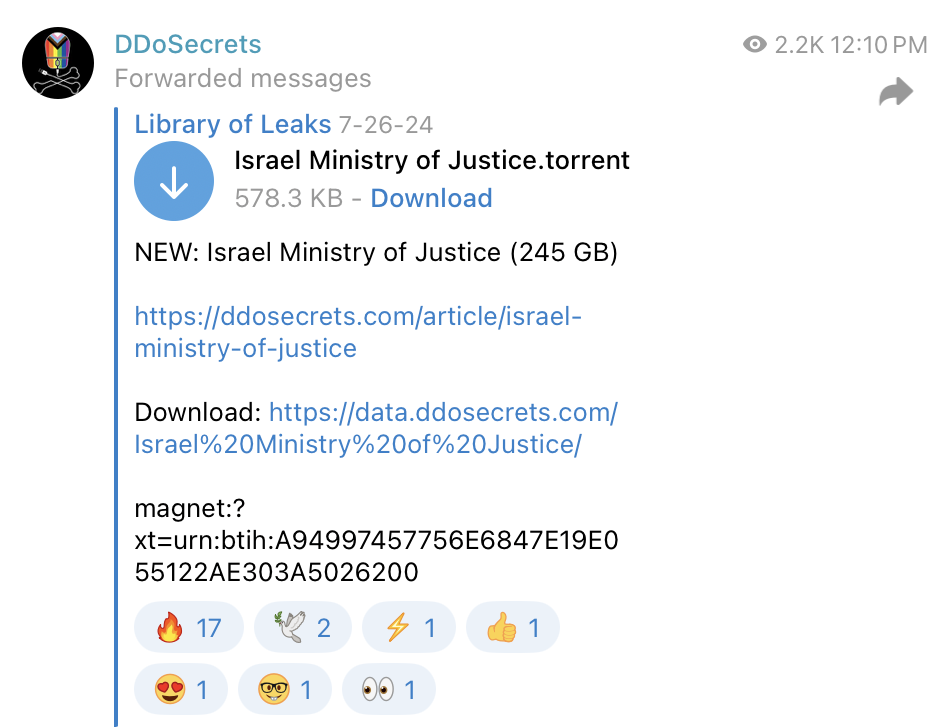Telegram channel of DDoSecrets shut down shortly after publication of Israeli ministry of justice 'leak'
The Telegram channel of Distributed Denial of Secrets (DDoSecrets), a journalist collective specialised in the publication of hacked material online, was shut down after sharing more than 1 million leaked documents from the Israeli ministry of justice.
The leaked documents, reportedly released in April 2024, contain "personal details of senior officials in the ministry along with sensitive correspondence [and] internal and classified ministry documents", according to the Israeli newspaper Haaretz.
Last July, some of the leaked files published by DDoSecrets were used to show that Israel seized and suppressed state secrets contained in a lawsuit against Israeli spyware vendor NSO group.
Last week, The Guardian revealed, thanks to more documents from the leak, that Israeli officials tried to circumvent a foreign agent law in the US as part of their pro-Israel advocacy efforts there.
The Internet Referral Unit within the Israeli State Attorney’s Office, which is part of the Israeli Ministry of Justice, has been accused of being behind the shutdown request.
The unit, sometimes referred to as the ‘cyber unit’, is headed by Dr. Haim Wismonsky and responsible for monitoring the Internet for leaks and reporting them to the platforms where they are hosted.
According to a recent Haaretz article, one of the victims of the cyber unit’s efforts is the Telegram channel of a “WikiLeaks-style website [whose goal is to] provide a safe online haven for leaks of different types".
Many see DDoSecrets as the successor of the now almost defunct whistleblower website Wikileaks.
Speaking to Haaretz, Wismonsky justified his unit’s takedown requests, stating: "These are efforts that require creativity and decisive actions through an array of legal tools."
However, this can also prevent journalists from reporting on the details contained in the leaked documents, especially as the Israeli government has instituted a court order preventing Israeli media from reporting on the leak.
The New Arab contacted Dr. Wismonsky, as well as the Embassy of Israel in London, for comment. No reply was received at the time of publication.
Leaks and gag order
DDoSecrets has one of the largest databases of leaked material online, and in June released one of its first databases in relation to the ongoing war on Gaza, dubbed “Op Cyber Toufan”.
The database contained some 20,000 documents from Israeli governmental organisations and companies, including personal information of Israeli citizens obtained from the ministries of health and of welfare and social security.
This was followed with more releases in July, this time with documents related to the Israeli army and ministries of defence and justice.
Links to the datasets would then be shared on Telegram on a channel called 'Library of Leaks".
However, a few days after DDoSecrets posted links to the leaked material on its Telegram channel, it was shut down.
Lorax Horne, editor at DDoSecrets, told TNA that Telegram provided no explanation for the removal of their channel from the platform but alleged it was a form of “censorship".
"Taking down the DDoSecrets channel is an escalation, and it is dangerous for Israel to conflate DDoSecrets with the hackers' channels," Horne added.
Shortly after the leaked documents surfaced, the Israeli National Cyber Directorate opened an investigation into the leak and instituted a gag order over all the leaked material, which prevents Israeli media from reporting on it.
Such court orders issued in Israel have been used in the past to prevent access to material published online.
In 2016, +972 Magazine reported that Israeli authorities were enforcing gag orders on posts by journalist and TNA contributor Richard Silverstein he had published in the US.
Telegram’s arbitrary enforcement of take down policies
It is not clear on what basis Telegram chose to shut down DDoSecrets’ channel, while its Terms of Service section does not provide many details on what it considers to be sanctionable actions on the platform.
In the past, Telegram’s founder and owner Pavel Durov spoke out against the use of gag orders by governmental bodies.
In a December 2021 post, Durov said: “[US] agencies don't even need a court order to extract private information from messaging apps such as WhatsApp... Telegram is one of the few messaging apps that doesn't breach their users’ trust."
However, according to US magazine Wired, Telegram has since shared the personal information of some of its users with national authorities as a consequence of court orders, most notably with German and Indian authorities.
In the context of the war on Gaza, Telegram quickly shut down multiple channels associated with Hamas, in the aftermath of the 7 October attacks.
Telegram was accused of failing to take action against a channel reportedly run by the Israeli army’s psychological warfare department - the so-called ‘72 virgins-uncensored’ channel - which displays extremely graphic videos of Israeli soldiers’ potential war crimes in Gaza. The channel continues to be active until today.
In the ten days after Hamas’ attack, Israel’s Internet Referral Unit submitted some 143 requests for content removal requests to Telegram. It is not clear how many of these requests Telegram complied with.
The New Arab contacted Telegram to provide comment, but no reply was received at the time of publication.






 Follow the Middle East's top stories in English at The New Arab on Google News
Follow the Middle East's top stories in English at The New Arab on Google News


![A group of Palestinians, foreign and Israeli activists gather to participated in an olive picking event on the land in the town of Battir, which is under threat of confiscation by Israel in Bethlehem, occupied West Bank on 8 November 2024. [Getty]](/sites/default/files/styles/image_330x185/public/2182930803.jpeg?h=199d8c1f&itok=__0LgGsa)